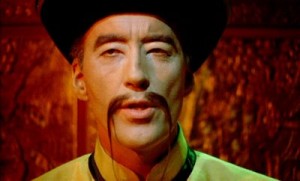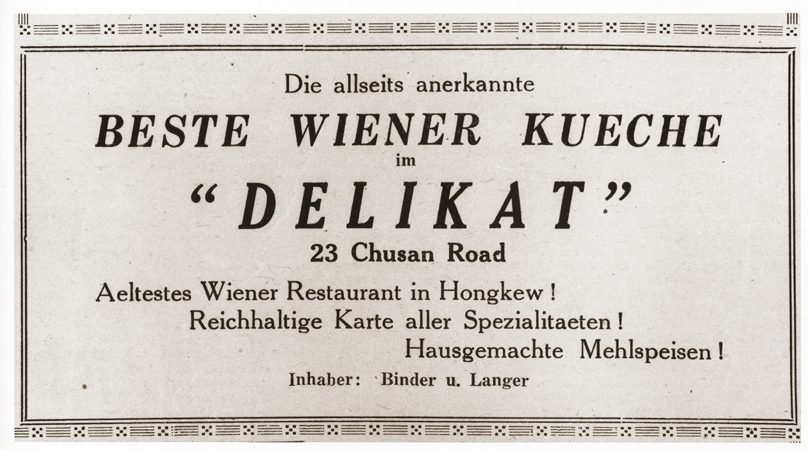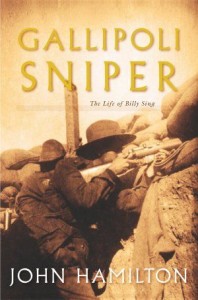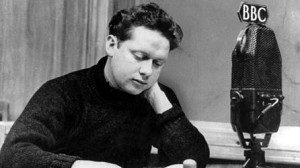Posted: May 3rd, 2014 | No Comments »
‘Rage, rage against the dying of the light.’ It’s the centenary of Dylan Thomas’s birth, a favourite poet of mine ever since I was given a copy of Under Milk Wood as a young lad. I didn’t think I’d be able to work Thomas into this blog but it turns out that, as a boy, as a boy, in Swansea he did dream of China….
Dylan Thomas from Quite Early One Morning:Â
         “I was born in a large Welsh town at the beginning of the Great War—an ugly, lovely town (or so it was and is to me), crawling, sprawling by a long and splendid curving shore where truant boys and sandfield boys and old men from nowhere, beachcombed, idled and paddled, watched the dock-bound ships or the ships streaming away into wonder and India, magic and China, countries bright with oranges and loud with lions; threw stones into the sea for the barking outcast dogs; made castles and forts and harbours and race tracks in the sand; and on Saturday afternoons listened to the brass band, watched the Punch and Judy, or hung about on the fringes of the crowd to hear the fierce religious speakers who shouted at the sea, as though it were wicked and wrong to roll in and out like that, white-horsed and full of fishes.”
Posted: September 16th, 2013 | No Comments »
Fu Manchu in London: Lao She, Limehouse and Yellow Peril in the Heart of Empire
Friday 4th October 2013, 115 New Cavendish Street, London W1W 6UW

The Department of English, Linguistics and Cultural Studies is pleased to be hosting this one-day conference on the occasion of three auspiciously inter-related events this autumn: the publication by Penguin Modern Classics of Lao She’s forgotten masterpiece of 1920s Chinese London, Mr Ma and Son, the launch at the Ovalhouse Theatre of Daniel York’s satiric play, The Fu Manchu Complex (dir. Justin Audibert), and to mark the centenary of the first appearance of “the Yellow Peril incarnate in one man”, Lord of Strange Deaths: The Fiendish World of Sax Rohmer, a collection of essays edited by Phil Baker and Antony Clayton (Strange Attractor Press, 2013).
The day’s speakers will examine the contexts and enduring fascination of one of the world’s most notorious fictional villains, from the fin-de-siecle racial anxieties and obsessions that spawned Rohmer’s oeuvre to the skewed perceptions that have arisen around his pervasive influence. Of all the overseas Chinese who came to England during the inter-war years, Lao She was the only one to confront the popular Sinophobia endemic in British society directly. Mr Ma and Son: Two Chinese in London (Er Ma, 1929) portrays the pernicious effects of the media on the lives of Chinese people in London. Based on his own experiences in London and written principally for a Chinese readership, the novel gives us a rare, if not unique, picture of the social and commercial affairs of the shop-keepers, café proprietors, and seafarers, that made up the major part of London’s small Chinese community, then based in Limehouse in the East End. Daniel York’s play, The Fu Manchu Complex challenges the resonances of ‘Yellow Peril’ stereotypes for the 21st century in a satirical pastiche of classic British cinema. Five East Asian actors ‘white up’ in the style of slapstick and Victorian music-hall comedy to play the traditional colonials in a murder mystery set in the East End.
Â
Admission is free but please register by emailing Dr Anne Witchard here:
anne@translatingchina.info
 Â
Â
Â
PROGRAMME
9.30AM Coffee/Introduction from Anne Witchard
Â
Dr Anne Witchard
Anne Witchard is lecturer in English Literature and Cultural Studies at the University of Westminster. Her publications include Thomas Burke’s Dark Chinoiserie: Limehouse Nights and the Queer Spell of Chinatown (Ashgate, 2007), Lao She in London (Royal Asiatic Series Shanghai HKUP, 2012) and London Gothic: Place, Space and the Gothic Imagination (edited with Lawrence Phillips) (Continuum, 2010). She is currently working on an edited collection Modernism and British Chinoiserie (Edinburgh University Press, 2014) and England’s Yellow Peril: Sinophobia and the Great War (Penguin, 2014).
She was principal investigator of the AHRC funded network project, China in Britain: Myths and Realities (2012-2013) Â www.translatingchina.info
Â
Â
10.00AM – “Some Kind of Admiration or Respectâ€: Dr Fu Manchu as Hero
Phil Baker
This paper will argue that Fu Manchu, supposedly the most evil genius the world has ever seen, is paradoxically the hero of the series in which he appears. After considering the central role of exoticism in Rohmer we can see that, although there is considerable casual racism in his work, his attitude to the Chinese is as much about naïve idealisation as demonisation. Ultimately the characterisation of Fu Manchu as a sympathetic figure – comparable to Milton’s Satan, and popular culture’s Dracula – transcends the context of the Yellow Peril. Reading the books as a serial, this paper will suggest that the early emphasis on Fu Manchu as a man of his word develops over time until the growing mutual admiration between the Devil Doctor and his principal enemies, Sir Denis Nayland-Smith and Doctor Petrie, becomes a romance of respect.
Â
Phil Baker’s books include Beckett and the Mythology of Psychoanalysis (Macmillan, 1997), described by the Cambridge Introduction to Samuel Beckett as an “important book…[and] a breakthrough in this field.†Since then he has concentrated on the byways of popular and unpopular culture, with further books including The Devil is a Gentleman: The Life and Times of Dennis Wheatley (Dedalus, 2009) and Austin Osman Spare: The Life and Legend of London’s Lost Artist (Strange Attractor, 2011). He reviews regularly for the Times Literary Supplement and other papers, and has recently edited, with Antony Clayton, Lord of Strange Deaths: The Fiendish World of Sax Rohmer, a collection of essays to be published by Strange Attractor late in 2013.
Â
10.45AM – The Case of the Yellow Peril Then and Now
Dr Ross Forman (University of Warwick)
This paper will look at some of the contexts of Yellow Peril discourse and its resonances in contemporary popular culture, such as the debates around current TV productions, such as Sherlock, Run and Top Boy.
Ross Forman lectures in the Department of English and Comparative Literary Studies at the University of Warwick. His main research focus is British imperialism during the long nineteenth century, with a special interest in the relationship between Britain and China. He is the author of China and the Victorian Imagination: Empires Entwined (Cambridge University Press, 2013).
Â
11.30AM – 11.45AM – coffee
Â
11.45AM – Fu Manchu, Orientalism and Arabophilia
Robert Irwin (SOAS)
Robert Irwin will discuss Orientalism in Fu Manchu and pulp fiction more generally. He will touch on Sax Rohmer’s lack of interest in things Chinese, his passion for Arabs and for Egyptology, his London as capital of the Arabian Nights, London as the locale of ‘gaslight romance’, drug-taking and conspiracies in Orientalist pulp, and the reality of Rohmer’s racism and its debt to the Arabian Nights.
Robert Irwin is a publisher and writer of both fiction and non-fiction. His works of non-fiction include The Arabian Nights: A Companion (Allen Lane, 1994), Islamic Art (Laurence King, 1997), Night and Horses and the Desert: The Penguin Anthology of Classical Arabic Literature (Allen Lane, 1999), The Alhambra, (Harvard University Press, 2004) and For Lust of Knowing: The Orientalists and Their Enemies (Allen Lane, 2006). Also Camel, Mamluks and Crusaders, Visions of the Jinn: Illustrators of the Arabian Nights (Ashgate) and the editing of and introducing The New Cambridge History of Islam volume 4, Islamic Cultures and Societies to the End of the Eighteenth Century, all in 2010 and Memoirs of a Dervish in 2011. He is also a contributor to Lord of Strange Deaths, the Fiendish World of Sax Rohmer (forthcoming 2013). Irwin was formerly a lecturer in the Department of Mediaeval History in the University of St Andrews. He is a Fellow of the Royal Society of Literature, the London Institute of Pataphysics, the Royal Asiatic Society and the Society of Antiquaries. He is a consulting editor at the Times Literary Supplement and is a Senior Research Associate of the History Department of the School of Oriental and African Studies, London University.
Â
12.30PM – 1.30PM – Lunch
Â
1.30PM – Rohmer’s Odyssey
Â
Antony Clayton
Â
Fu Manchu’s creator, Sax Rohmer (Arthur Sarsfield Ward, 1883-1959) was the king of pulp exotica. This biographical talk will look at Rohmer’s early life, his work in Music Hall, his books and travels.Â
Â
Antony Clayton is the author of Subterranean City: Beneath the Streets of London (Phillimore and Co., 2002), London’s Coffee Houses: A Stimulating Story (Phillimore and Co., 2004), Decadent London (Historical Publications Ltd., 2009), The Folklore of London (Historical Publications Ltd., 2008) and Netherwood: Last Resort of Aleister Crowley (Accumulator Press, 2012). Together with Phil Baker he is editor of Lord of Strange Deaths, the Fiendish World of Sax Rohmer (to be published in 2013).
2.15PM – Mr Ma and Son: Limehouse and the Yellow Peril genre
Dr Julia Lovell in conversation with author Paul French
With the publication of Penguin Modern Classics’ Mr Ma and Son we have at last an English language edition of Lao She’s neglected masterpiece that does justice to the author’s comic genius. William Dolby’s marvelously fluent translation has been rescued from the vaults of the British library where it was deposited back in the early 1970s. Here we see a panorama of 1920s London life through Chinese eyes, from literary soireés in Bloomsbury to Chinatown cafés down in the much sensationalized East End district of Limehouse. Julia Lovell, who has written a new introduction to the novel, will discuss with historian and author, Paul French, the ways in which Lao She’s portrayal of cultural clash in 1920s London gives readers a picture of what it was like to be Chinese at a time when mainstream culture in the West was dominated by notions of a Yellow Peril.
Â
Julia Lovell is lecturer in modern Chinese history and literature at Birkbeck, University of London, where her research focuses principally on the relationship between culture (specifically, literature, architecture, historiography and sport) and modern Chinese nation-building. Her non-fiction works include The Politics of Cultural Capital: China’s Quest for a Nobel Prize in Literature (University of Hawaii Press, 2006); The Great Wall: China Against the World 1000 BC-AD 2000 (Atlantic Books, 2006); and The Opium War: Drugs, Dreams and the Making of China (Picador, 2011). She has written the introduction to William Dolby’s translation of Mr Ma and Son (Penguin Modern Classics, 2013). Her own translations include fiction by Lu Xun, Han Shaogong, Eileen Chang and Zhu Wen. Lovell writes about China for The Guardian, The Times and The Times Literary Supplement.
Paul French has lived and worked in Shanghai for many years. His most recent book, Midnight in Peking (Penguin, 2012), was a New York Times Bestseller, a Radio 4 Book of the Week, and is to be made into an international mini-series by Kudos Film & Television in the UK. He recently published a Penguin Special e-book, The Badlands: Decadent Playground of Old Peking, attempting to recover the once notorious 1930s foreign-run Badlands of Beijing. His essay ‘Fu-Manchu, his Daughter and the Dragon Ladies of China’ is in Lord of Strange Deaths, the Fiendish World of Sax Rohmer (forthcoming 2013).
Â
3.15PM – The Fu Manchu Complex
Â
Daniel York and Justin Audibert will discuss their play, The Fu Manchu Complex, in production at the Ovalhouse Theatre in London.
Â
Daniel York was
born of mixed Singaporean/English parentage and grew up in the UK. As an actor his theatre work in London includes Mu-lan’s award winning production of Porcelain at the Royal Court and Fortinbras opposite Alan Rickman’s Hamlet at the Riverside Studios. As a writer and director his feature film script Beautiful Friend has been developed by Film4 and his short film, Mercutio’s Dreaming: The Killing Of A Chinese Actor, was recently nominated for four awards at the World Music & Independent Film Festival.
Last year he was selected as part of the Royal Court’s Unheard Voices initiative for emerging East Asian writers. As a result of this he was invited on to the Royal Court Studio writers.
Â
Justin Audibert
Justin Audibert is a freelance theatre director and Associate Director for Red Ladder. Recent directing credits include A Season In The Congo: Parallel Project (Clare, Young Vic), Wrong’ Un by Boff Whalley (Red Ladder), Gruesome Playground Injuries by Rajiv Joseph (Gate Theatre), The Tempest (RSC Shakespeare in a Suitcase), Front by Vickie Donoghue (Rada Festival), Future Regrets by Roz Wyllie (live theatre / RSC), Armley The Musical by Boff Whalley (Interplay) and Company Along The Mile by Tom Bidwell (WYP / Arcola). As an Assistant Director he has worked with Greg Doran, Lucy Bailey, David Farr, Rachel Kavanaugh, Paul Hunter and Sarah Esdaile amongst others. Audibert is an Associate for Told By An Idiot, an Artistic Associate of HighTide Theatre Festival and has directed at numerous drama schools including Drama Centre, GSA and ArtsEd. He has worked for the Royal Shakespeare Company as an Education Associate Practitioner in the UK, the US and Brazil. In 2012 Audibert was the Acting Coach for the finalists of BBC 2’s Shakespeare Off By Heart. He has been Resident Director at the National Theatre Studio, and was the recipient of the 2012 Leverhulme Award for Emerging Directors. Justin trained on the Birkbeck MFA in Theatre Directing.
Â
The Fu Manchu Complex runs at the Ovalhouse, Kennington
1 – 19 October, Tues-Sat 7.45pm
BOOK / BOX OFFICE: 020 7582 7680
Posted: November 2nd, 2009 | 6 Comments »
There’s been a bit of buzz around the blogs about the parlous state of Hongkou and the widespread destruction there of late as Shanghai ‘prepares’ for the pointless EXPO next year. I’ve noted the coming down of several former sites in the old Jewish ghetto while Adam Minter on his Shanghai Scrap blog has also noted the levelling of Hongkou and elicited plenty of responses predictably taking both sides.
One road to get hammered is the old Chusan Road (now Zhoushan Road) ,which was also part of the ghetto. The road was home to the Hongkou’s Chusan Road Market where many Jewish refugees shopped in the 1940s – to them it was known as the Die Markthalle. The road became lined with cafés and meeting places for refugees as the official Jewish Zone of Security expanded during the Japanese occupation but only those with certain passports could get out of the ghetto to the strip of European-style cafés.
The refugees transformed Chusan Road from a fairly ordinary Chinese road to something approximating a slice of Vienna with groceries, pharmacies, bakeries, plumbers, locksmiths, barbers, tailors, milliners, cobblers – and, of course, there were the inevitable Viennese coffee-houses, such as the Vienna Café Restaurant, the Delikat at 23, the Barcelona at 21 (home to the Jewish Barcelona Football Club), the International at 81 and Hesky and Gerstl’s tearooms at 252. For those a little short of money but still hungry there was a popular wurstelstand parked in the kerb selling hot dogs. Several small-scale factories were also established producing soap, candles, knitwear, leatherwear and especially European-type food products such as sausages and confectionary.
Here’s an ad for the Delikat from the late 1930s.

Posted: September 21st, 2008 | No Comments »

A couple more posts prompted by my recent trip to Australia.
Everytime I visit Oz a quick trip round the bookshops of Melbourne and Sydney is required. Australia seems to have a thriving publishing industry and I often come across interesting books down under that I’ve never heard of before. This time was no exception.
For a number of reasons – not least their horrendous losses in total population terms – the Australians have retained a stronger fascination and collective memory of the First World War than Europeans I think. This year has seen a lot of new WW1 books what with it being the 90th anniversary of the Armistice in 1918. Among them is one I had not heard of and haven’t seen reviewed anywhere but is well worth a read – John Hamilton’s
Gallipoli Sniper: The Life of Billy Sing (Macmillan Australia).
The book interested me for a number of reasons – I read a lot on the Gallipoli/Dardanelles campaign as a cousin on my mother’s side died fighting with the British infantry there while my Great Grandfather was in the Royal Navy during the evacuation of British and ANZAC troops away from the disaster and nearly lost a foot to a Turkish shell (which I have somewhere – it was his most treasured souveneir and certainly dragged out more often at family parties than his medals!).
But the book is also of interest as Billy Sing, Australia’s most notorious sniper at Gallipoli (200 credited kills), was half-Chinese. His father was originally from Shanghai and emigrated to Australia as part of the nineteenth century gold rush ending up a drover in remote Clermont, 800 or so miles north of Brisbane in Queensland, and marrying an English woman in what appears to have a been a socially disliked but internally very happy marriage. Hamilton’s book has some interesting asides on the problematic relationship of the Chinese in Australia, racism, the contempt many ‘whites’ held for inter-racial marriages, the sometimes violent and tragic anti-Chinese reaction of some, the adverse effects on the Chinese of the introduction of the White Australia Policy etc. Technically Billy should not have ended up a Light Horseman or in Gallipoli (he later also fought in the trenches of France) at all – the rules stated that recruits should be of ‘majority European heritage’ and many other Chinese-Australians who tried to enlist were rejected purely because of their heritage.
Billy became notorious turning his bushman skills to sniping. He returned to Australia sick and wounded but notorious – his horrific expriences at Gallipoli and in France as well as his notoriety did not help his post-war adjustment and the book ends on a rather sorry but poignant note.
Hamilton had to work from scant sources – Billy didn’t exactly leave copious notes on his experiences – but manages to pull his life together into a coherent narrative. Billy Sing’s was hardly the typical Chinese-Australian experience – his mixed ancestry allowed him more fluidity in turn of the century Queensland and beyond than most, he never evinced much interest in the Chinese part of his background and was, if anything, the archetype of the Ozzie cobber valuing mateship higher than anything else in the outback while at the time he achieved a level of fame across Australia few if any other Chinese in the country did. But his extraordinary story is as much a part of the experience of those Chinese that went to Australia in the nineteenth century and their offspring as any other.




 A couple more posts prompted by my recent trip to Australia.
A couple more posts prompted by my recent trip to Australia.